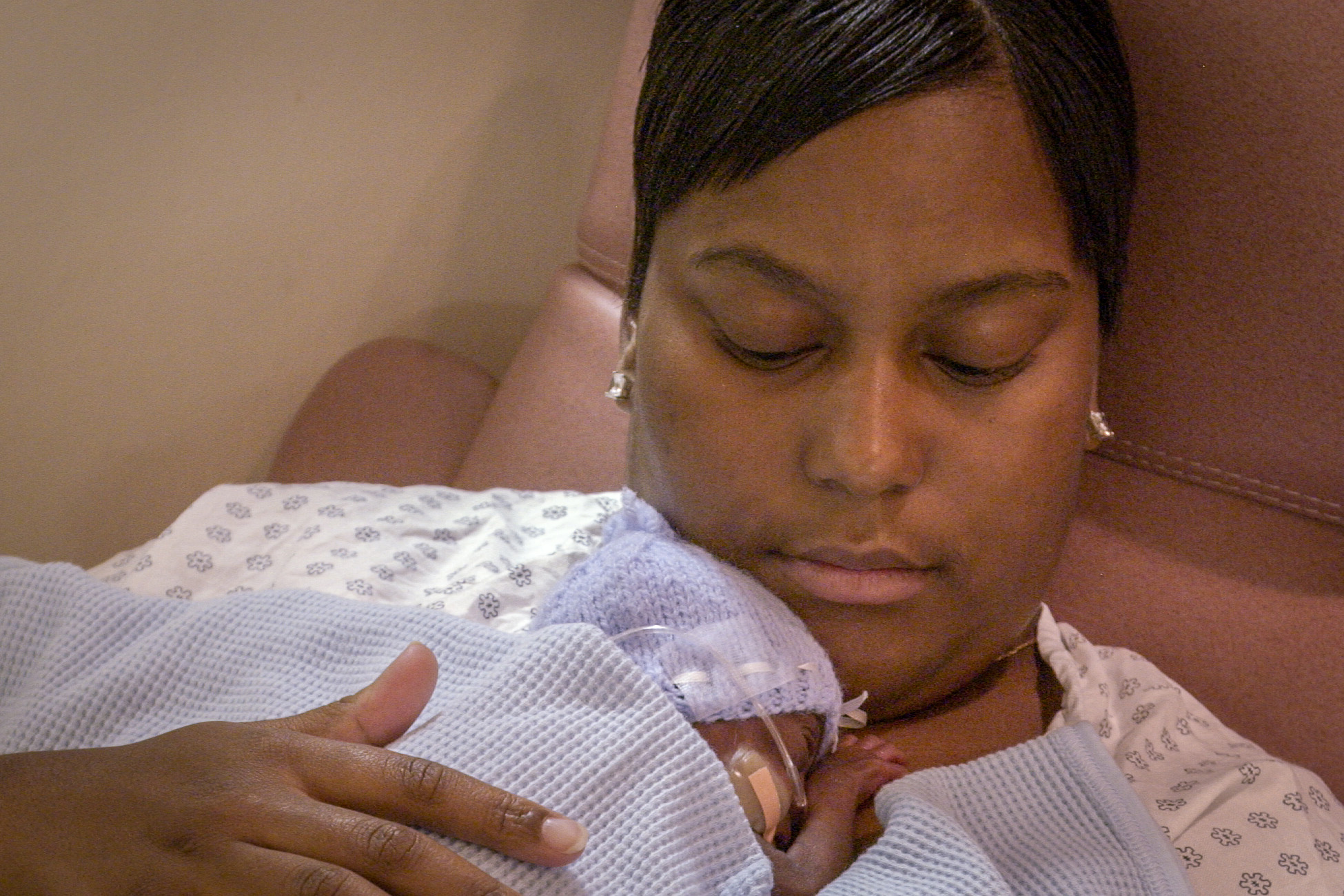Part of a series of posts for Brain Awareness Week, March 12-16.
Babies born too early have to do much of their developing outside of their mother’s womb, and the stress of that can be hard on their brains. Bleeding or lack of oxygen often injure preemie brains like strokes injure an adult. This can lead to lifelong disabilities, and right now doctors have no way to help them.
“Spending the last 10 weeks of the pregnancy in the NICU, instead of in utero, has enormous effects on brain development,” says Ted Rosenkrantz, professor of pediatrics at UConn Health and neonatologist in the Connecticut Children’s Medical Center NICU at UConn Health.
Spending the last 10 weeks of the pregnancy in the NICU, instead of in utero, has enormous effects on brain development. — Ted Rosenkrantz
Rosenkrantz teamed up with UConn developmental neuroscientist Holly Fitch, professor of psychological sciences, to see if they could find potential treatments for preemies.
In the February 21 issue of the International Journal of Developmental Neuroscience, they assess two of them. The first, hypothermia, lowers the baby’s body temperature to about 33.5 degrees Celsius (92 degrees Fahrenheit) for three days. This slows down the metabolism of brain cells, giving them time to recover from the lack of oxygen. Cooling is already used to treat full-term babies who have suffered from oxygen deprivation during birth, and it helps reduce future intellectual disabilities by about 25 percent.
But pre-term babies’ brains are different from those of full-term babies. A baby born at 30 weeks gestation – 10 weeks early – has an area in the brain called the germinal matrix. It has a good blood supply and is full of young cells destined to populate other parts of the brain. But the tissue supporting the blood vessels in the germinal matrix is fragile, and if the baby gets stressed and has a big dip or rise in blood pressure, those vessels can burst and bleed into the rest of the brain. Brain cells in this area are also very vulnerable to lack of blood flow and oxygen. The bleeding can kill these young brain cells, which then never make it to the brain regions they were destined for. Depending on the age of the baby, this can cause cerebral palsy, or learning, memory, or other intellectual deficits.
Because preemies’ brains are different than full-terms’, they might respond differently to hypothermia. One small study had suggested that it might actually hurt them. So Rosenkrantz and Fitch also wanted to test caffeine. Other researchers had noticed that pre-term babies given caffeine to help them breathe – a standard treatment for babies who have been on ventilators – seemed to have lower incidence of cerebral palsy and learning deficits later in life, but no one had tested this directly.
To see whether either of these treatments might work, the researchers tested these therapies in a study using rats. Rats are born less developed than humans; the brain of a six-day old rat is approximately like that of a baby born two months early, at 32 weeks gestation.
The rats tested confirmed the researchers’ suspicions about hypothermia. It wasn’t helpful to the rats with oxygen deprivation to the brain, and even seemed to harm the healthy rats. All the rats treated with hypothermia had learning and memory disabilities.
Caffeine, on the other hand, seemed to help both with motor learning and with listening skills that in humans are used for understanding speech.
Now the researchers plan to do a much larger study, testing different dosages of caffeine and tracking whether male and female rats respond differently.
“Parents are so concerned about their baby just surviving that they’re not focused on problems that may not come out until years later. But for those parenting a child with learning disabilities, the impact is huge,” says Fitch. “I’d really like to see this research translate into something that will help babies, and potentially reduce the number of school-age children with learning disabilities.”
Read more about UConn research on the brain in the series Brainstorm.



